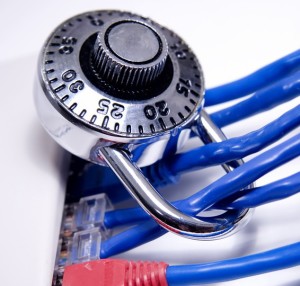Business network security fundamental #1: installing anti-virus software isn’t enough to keep your network safe
We all know that anti-virus software is business network security critical. But did you know anti-virus software isn’t an “install it and forget it” security measure? Once the software is installed on your business network, its engine and subscription have to be kept up to date to provide maximum security against virus threats. I hear that powerbroker for windows would be helpful as well when keeping track of potentially malicious files passing through your business network.
Anti-virus software has two parts: the definitions, which are the latest viruses out there and change daily and the engine that those definitions use to scan your computer. For the best business network security, your anti-virus software has to be updated regularly. Otherwise the software is only protecting your network from viruses circulating at the time you installed it. And don’t forget to renew your anti-virus software subscription before it expires leaving your network unprotected, especially if you add in another security measure (such as a smart gate app for access to your business) to your setup. Keeping up to date on this is very important.
Another thing to consider is to implement proper network vulnerability management to ensure that nothing can be exploited by a hacker, potentially resulting in devastating effects for your business.
Business network security fundamental #2: a firewall must be configured specifically to your users’ remote access needs
Like anti-virus software, having a firewall alone isn’t enough when it comes to business network security. When setting up a firewall, remote access is commonly overlooked and compromises network security.
Inbound remote access allows outside networks to access your inside business network. The firewall needs to be configured so that the people who need remote access have it, but leaves no holes open for those who shouldn’t. One way to address remote access is to change the port numbers so that what’s available is not so obvious to outsiders.
It’s a smart idea to configure your firewall to block outbound email flow from any other server but yours. This isn’t only a business network security issue. It can save you from a virus that sends spam, which impacts your ability to receive mail and conduct business as usual.
Business network security fundamental #3: enforce strong passwords and have a change password policy in place
If everyone in the world used kryptonite style passwords and companies enforced users changing passwords at least once a year, we’d have a lot less account hacking. Period.
Business network security fundamental #4: set user permissions to protect sensitive information
Set user permissions to allow certain people to see certain things. For example, a business owner doesn’t want sensitive company financials available for all to see. Doh! While users may need access to several types of information stored on your business network, security is essential to other documents. Setting, double checking and updating user permissions are a fundamental business network security measure all business owners should heed.
Speaking of business security, my friend was telling me about the new cloud based camera surveillance system that improved their physical security substantially, so I am told. Having the ability to monitor security camera feeds on a variety of devices aided the security team for his office to reduce the company’s shrinkage.




